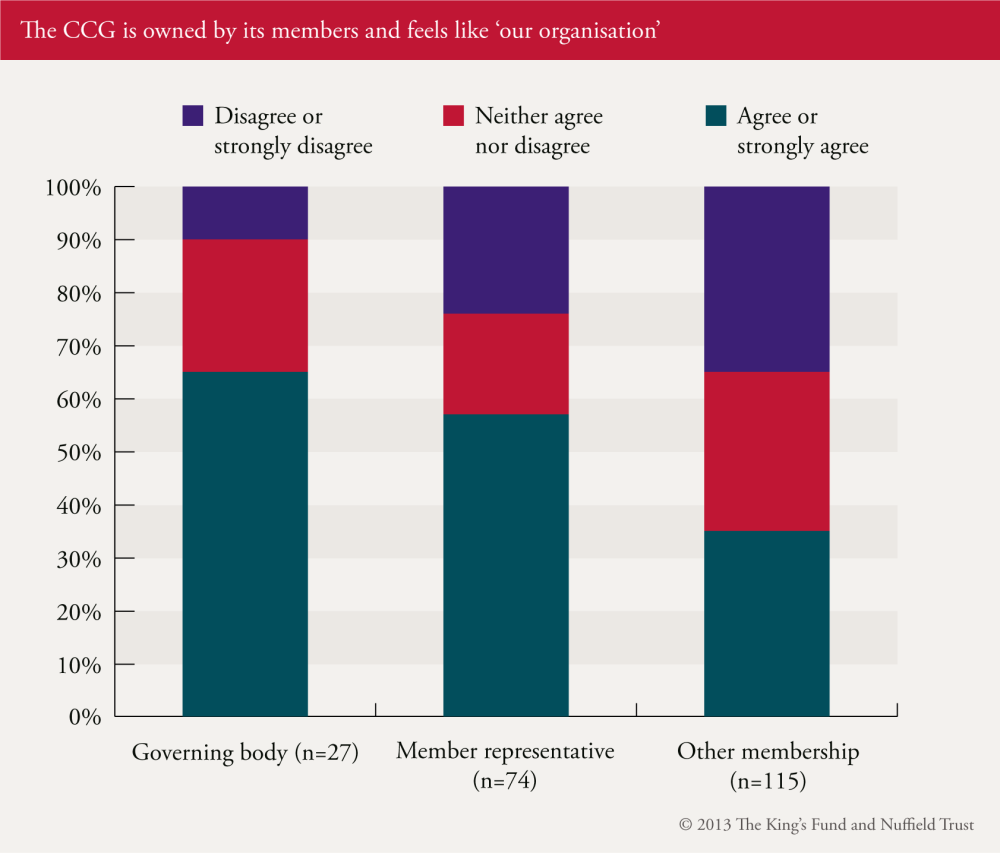Much has been written about the current pressures facing primary care. Perhaps it seems fairly predictable therefore, to hear that many GPs are finding it difficult to engage with the clinical commissioning opportunity.
But unfortunately for CCG leaders working hard to increase involvement, it is the support and involvement from members that provides one of their greatest potential assets.
So how big do GPs think the challenge is ahead? New research, along with a growing body of evidence, may provide a few tips.
Specifically The King’s Fund and Nuffield Trust have combined forces to chart the progress of clinical commissioning groups in six case study sites from 2012 to 2015. Our study is focused on the relationship between CCGs and their members, and the role that CCGs could play in supporting general practice to evolve.
There was an impressive sense of energy in the sites we studied, something that was lacking in previous forms of commissioning
The first year report, based on CCG’s pre-authorisation experiences, Clinical commissioning groups: supporting improvement in general practice was recently published in July 2013.
Among the GPs we interviewed, there was a widespread desire for CCGs to succeed. However the turbulent landscape within which CCGs were created has undoubtedly contributed towards the challenge of member engagement, suggesting that CCG leaders need to work hard to sustain the enthusiasm they have as well as securing new engagement from others.
Many of the GPs surveyed reported feeling dislocated from the work of the CCG and were unsure about the impact CCGs will have on their clinical practice. And despite GPs acknowledging that there is a legitimate role for CCGs to play in influencing their prescribing and referral patterns, and levels of access their services, they identified strategies that use sanctions or performance objectives as potentially problematic.

This is not to suggest that CCGs have been or will be unsuccessful. Far from it. There was an impressive sense of energy in the sites we studied, something that was lacking in previous forms of commissioning.
Members and leaders alike valued the opportunities for learning and networking provided by their CCG. We also observed many successful ways in which CCGs strengthened engagement, such as demonstrating early successes either from the patient or clinical perspective. These are listed in our report.
But it did seem that there was room for improvement in communicating how CCGs will operate in the wider health economy. This is certainly true for how the responsibilities for primary care development will be shared between CCGs and NHS area teams.
Particularly given the current pressures primary care is under and the need to create new models of care that more appropriately suit different population groups CCGs undoubtedly have a role to play in facilitating this but a question remains about which organisation will lead the process.
CCG leaders need to work hard to sustain the enthusiasm they have as well as securing new engagement from others.
Suggested citation
Holder H (2013) ‘CCGs: the current view from local GPs’. Nuffield Trust comment, 22 July 2013. https://www.nuffieldtrust.org.uk/news-item/ccgs-the-current-view-from-local-gps
